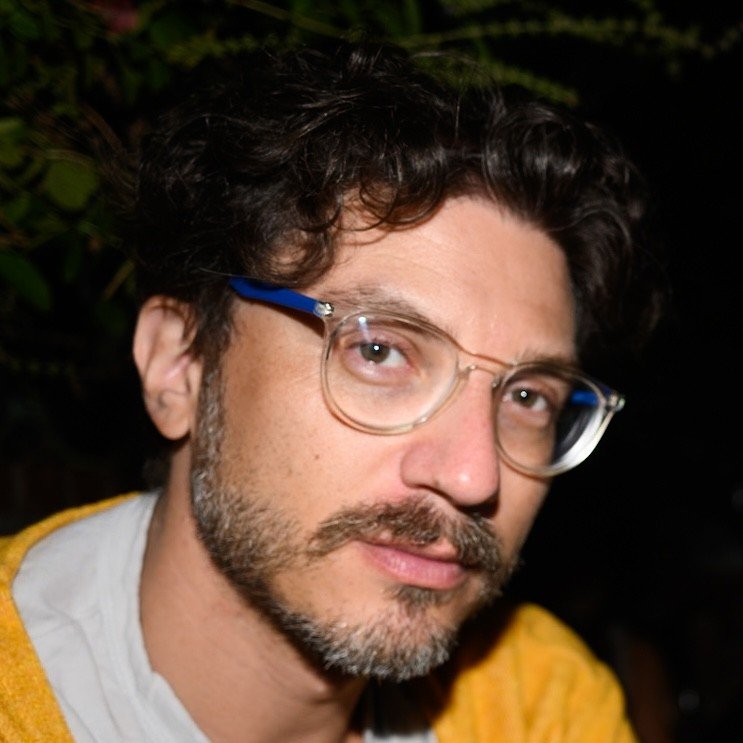Maybe Even the Most
by Jeremy Kaufman
My father’s greatest advice was that ‘people are rarely who you think they are and never who you want them to be’. He never actually told me this– I read it in a ratty journal of his I found buried in a box of university relics and newspaper clippings, the rambling memories of a man too proud to discard the regrets of his past. The journal was bound in leather, worn through to a canvas lining and cotton strings of support. Brown and oiled smooth, my father's sweat filled the pores of its creases and edging.
A woman hurt him. Broke his heart. He was 25 and this woman, a year younger, was not my mother. It was clear, from the 14 pages of pen-smeared scrawl, he hoped she would be just that, but on an odd March night in Manhattan, after the day’s sun felt deceivingly like summer, the possessor of my potential mitochondrial DNA sent him off onto the cobblestones of SoHo at precisely 3:17 am.
My father passed seven months before I first read his confession. Brain cancer took his sight and then any hope of a long drab senescence. He always dreamed of a quick decline, and his was one of the quickest. A day of pain, some elixir milked out of an ancient Andean plant, and he was off to barter his way through the gates of Valhalla. He was no soldier slain in battle but always loved Scandinavia.
I never heard of this woman who wasn’t my mother, and I wondered if my dear mother was likewise in the dark. She met my father 5 months later, and I imagine the wounds of this breakup still burned him inside, but my mother was never one to fawn over the broken or suffer their neediness. She could mend a torn shirtsleeve, but her bedside manner during my teenage agonies was soup during sickness and hints that life had much worse in store.
Or, perhaps she knew and kept quiet, a sore subject not to be broached for fear of igniting a spiraling regret in the man to whom she devoted her life and her womb.
My father and his Helen– they met in an office. He analyzed data and she sat on a grey couch in a pencil skirt, posture upright in a way he often attempted but rarely realized for more than a few minutes. A colleague, a rather randy colleague, exited the firm and she was there on an interview. He scoped out every potential replacement, but only she remained on his mind—the envious rigidity of her spine, the folder of resumes to her left and the grace she hid between cheekbones. There was much to that smile—it stretched from earlobe to earlobe. She liked it, he loved it. Especially the faint pop that tingled whenever they kissed. Surgery she told him, to fix something he never understood.
He left someone for her. Someone who loved him dearly. Gone the illusion of my father the saint. Never his plan, and she left someone as well, and for a long while it worked. His ego stood tall and they stayed up all night. They kissed on the streets, and they kissed on her roof, and they made love in the light of a 1st Avenue walkup.
He dreamt it would last.
He never wrote why she left him, just that she did. I bet he deserved it. Then again, probably not. We all have our own prerogatives. Everyone exists entirely in their own heads except maybe a perfect idiot.
I don’t doubt he loved my mother. For 43 years, they were married with four children, nine grandchildren, and two more on the way, but with the journal in my hands the blank spaces of their relationships came to be filled. “You can love more than one person,” he wrote. “But you can only love one person the most.” This other woman. His most.
I’ve since trashed his journal. What use would it be to rehash its contents with every apartment move and deep cleaning. I don’t how you often you do either, but it’s emotional enough as is.
This is all a true story, of course. If I’ve lied it’s only a bit. It hurts writing your own story.
And son, if you ever read this, know I did love your mother. Maybe even the most.
BIO: Jeremy Kaufman (he/him) is a television and fiction writer whose stories explore the myths we tell ourselves and the lengths we go to keep the truth from escaping into reality. His work has been featured on Netflix, Starz, and Amazon

